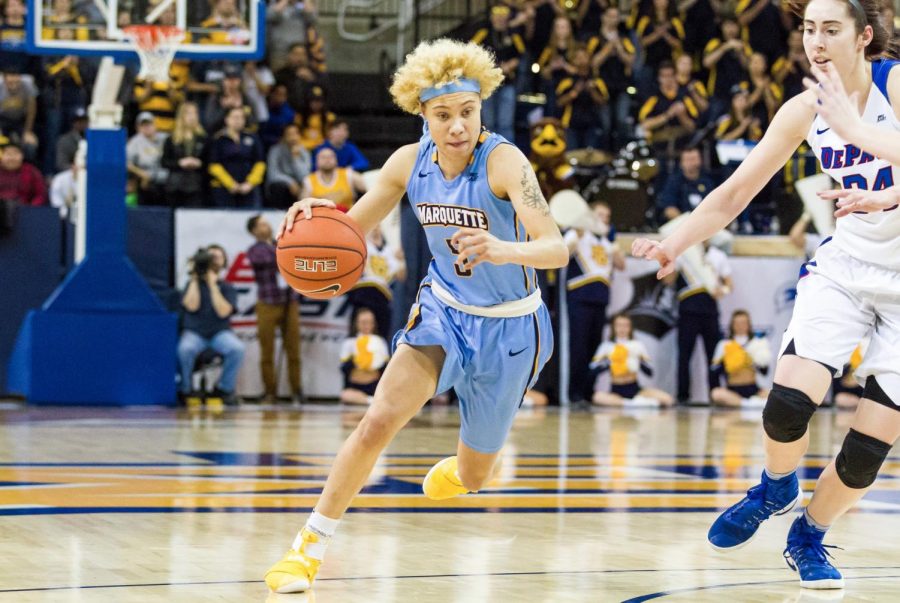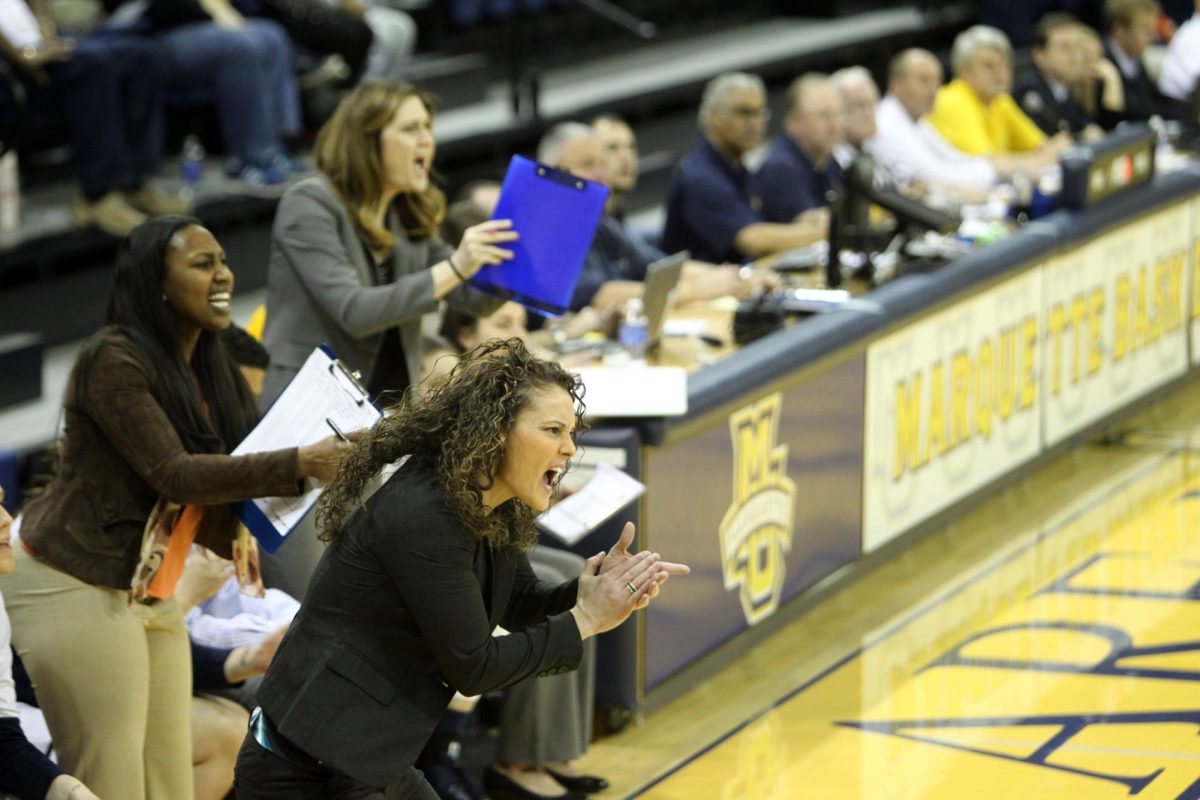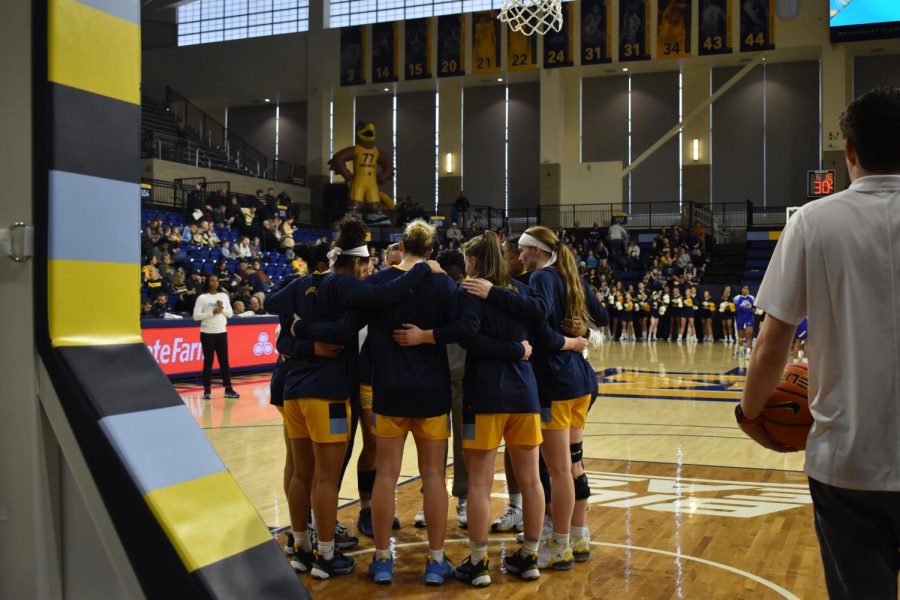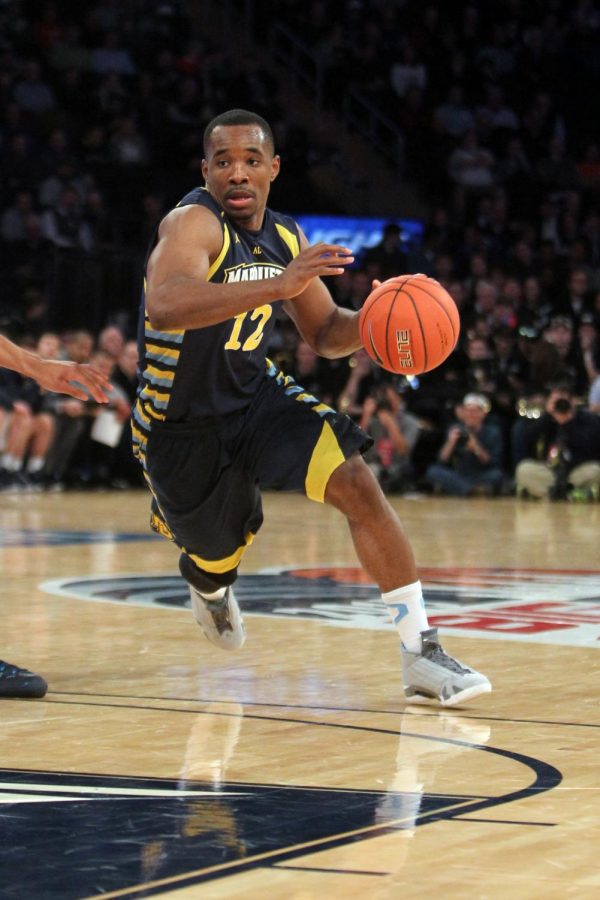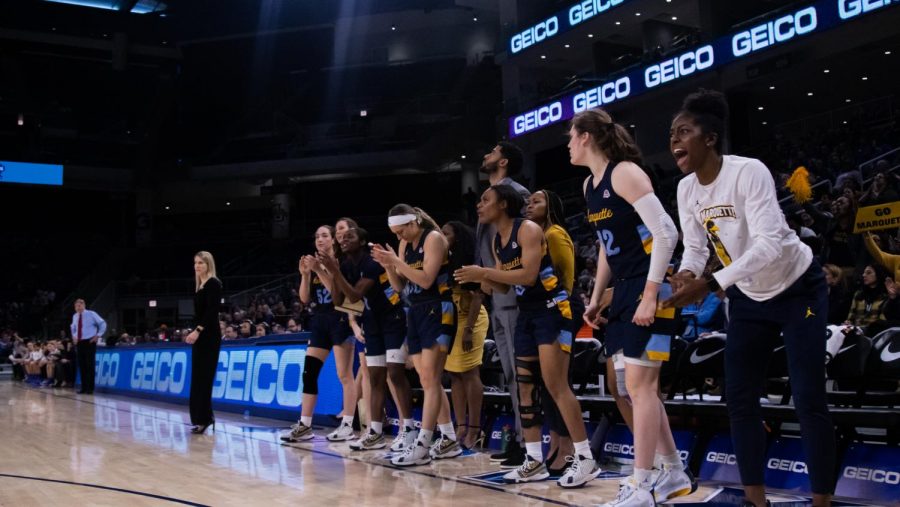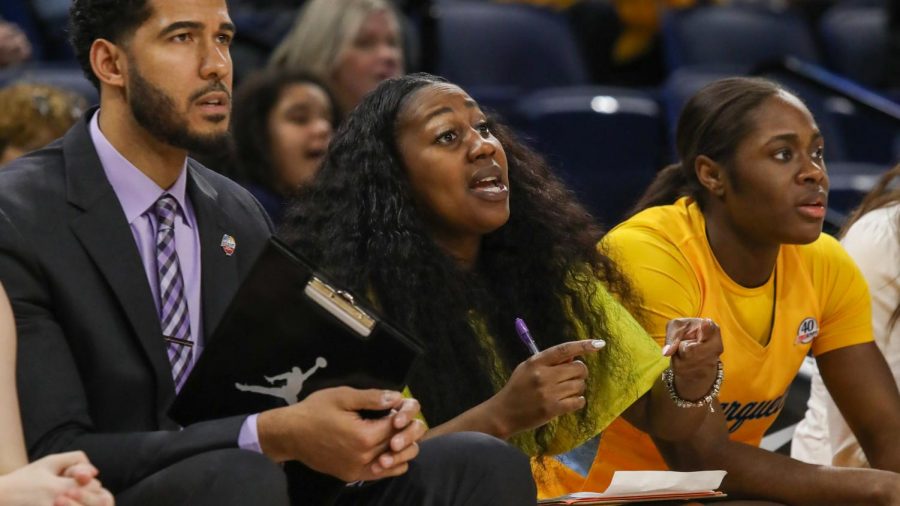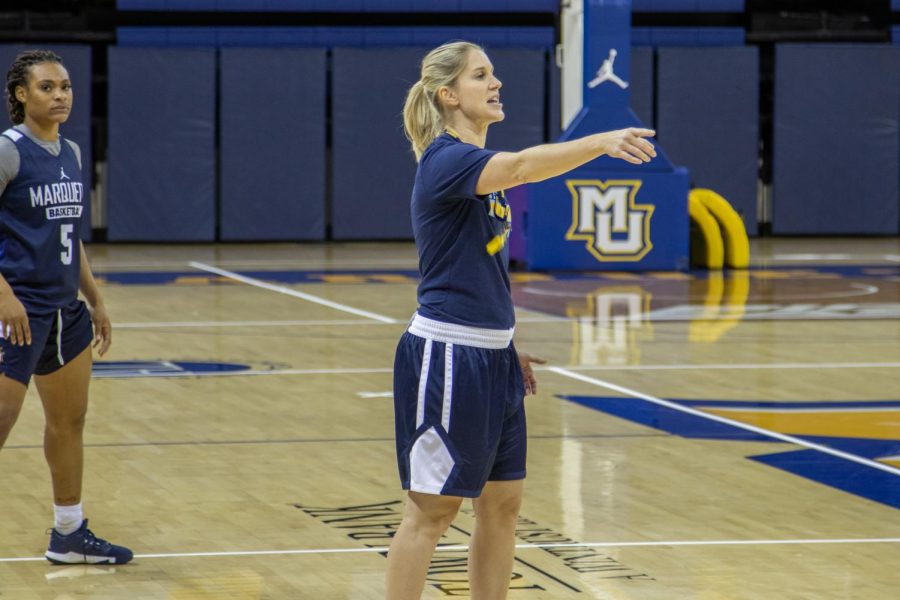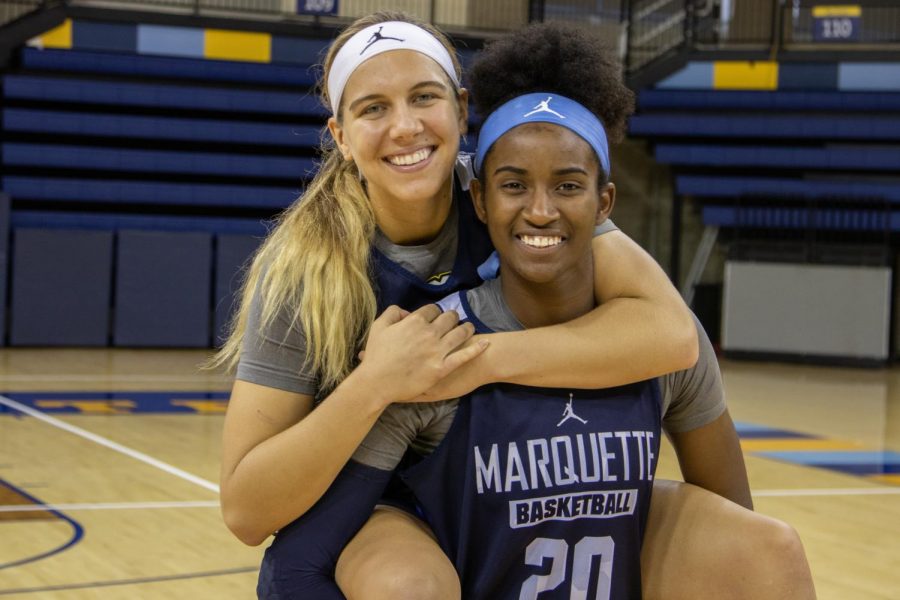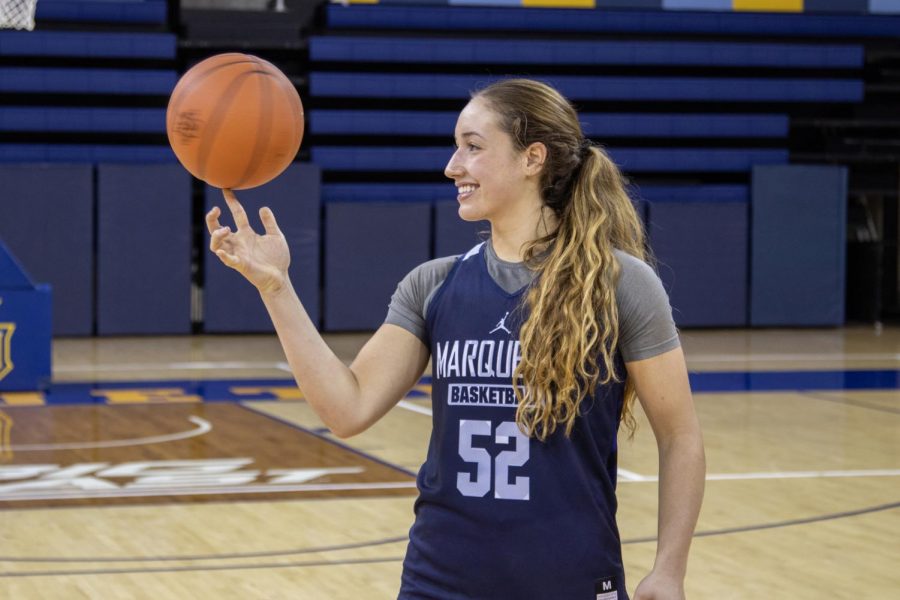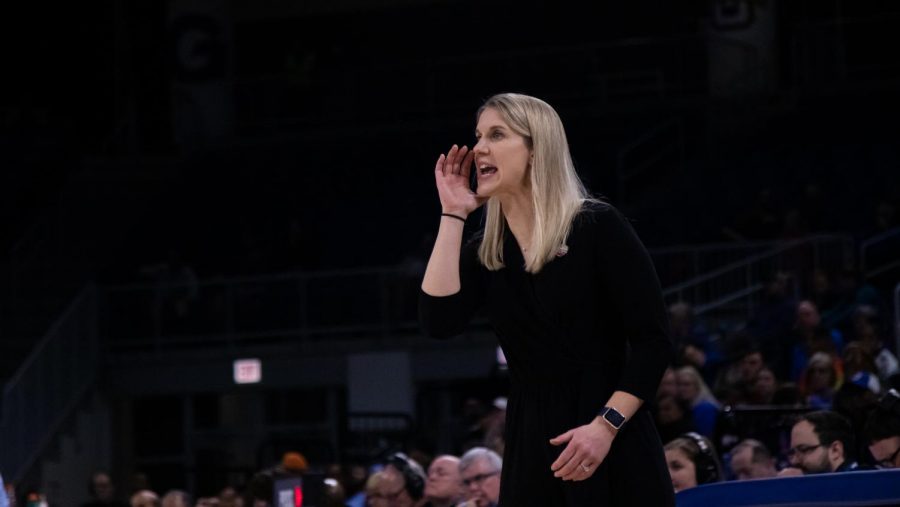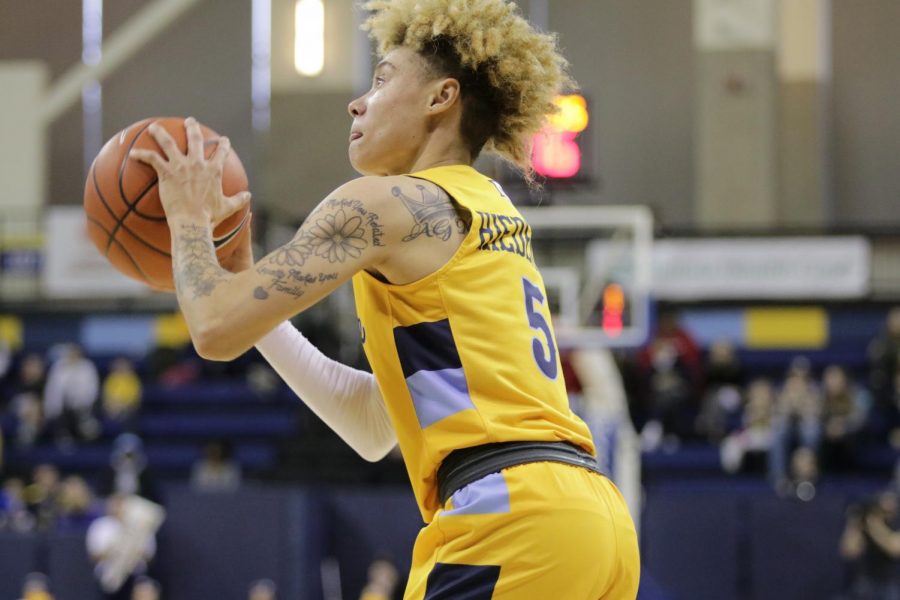When junior guard Allazia Blockton was considering where to go for college, she knew one thing for certain: She wanted to play fast. As soon as women’s basketball head coach Carolyn Kieger delivered her recruiting pitch, Blockton knew she found a kindred spirit.
“Coach (Kieger) told me right away that we want to be the fastest team in the country,” Blockton said.
Fellow guard Danielle King got the same message. “I figured that if she was recruiting me, then she definitely wanted to play fast,” King said.
Kieger, who is entering her fourth year as head coach, has held true to both players’ expectations. Marquette averaged 74 possessions per game, second in the BIG EAST to the DePaul Blue Demons, according to advanced metrics site BasketballState. The Golden Eagles are also taking almost three shots per game more than they were in former head coach Terri Mitchell’s final year, which adds up to almost 100 extra shots per season.
That attacking attitude is exactly what Kieger wants. “We’re always going to be a tempo-pushing team,” Kieger said. “That’s our style, that’s how we recruit too, that’s how our players want to play … In fact, you might see us go a little faster this year because we have more depth.”
Only two players from last year’s team, graduated senior McKayla Yentz and freshman transfer Meghan Mandel, will not return this season. The team is bringing back 85 percent of the team’s minutes last year and the top five scorers. The continuity makes it much easier for newer players, like sophomore Isabelle Spingola, to learn expectations.
“I think right now, Dani is the best at (directing everyone),” Spingola said. “She’s like the floor general and she’s telling everyone where to go.”
Marquette played without King for the half-hour of open practice before media day. Although King said she expects to play in the season opener, the offense was worryingly different without her. Players weren’t cutting as quickly. Turnovers were more commonplace. Most noticeably, there was far too little communication for Kieger’s taste.
“You two right here need to be a vocal point guard,” Kieger said as she pointed to Blockton and junior guard Natisha Hiedeman. “We need more than one point guard on this team. Does everyone understand that?”
The players nodded in unison as Kieger strode back to the sidelines. Blockton, who has been playing a lot more point guard in practice than in years past, admitted she still struggles to communicate with her teammates.
“That’s what Dani and Amani (Wilborn) do a good job of,” Blockton said. “Dani will hold the ball and be like, ‘hey, you go here, you go there.’ Sometimes as a point guard, I’m really quiet.”
Hiedeman has also had to make adjustments as a communicator. Hiedeman played in high-speed offenses since high school, but she has mostly done so as an off-ball guard that relied heavily on catch-and-shoot opportunities. As she deals with an increasingly heavy ball-handling burden, Hiedeman is finding there’s a difference between being part of a fast team and running a fast team.
“Coach was just kind of telling me that if I plan on playing after college, with my size and everything, I’m more likely going to be a point guard,” Hiedeman said. “She just wanted me to start practicing now and start fulfilling that role.”
Playing at a high tempo means operating at a significantly faster mental speed, which the current core of players learned to do as they matured. Of all the offensive numbers Marquette’s offense put up last season, Kieger was most proud of its 1.38 assist-to-turnover ratio, which was among the top 10 marks in the country.
Traditionally, Kieger has established a one-to-one ratio as the benchmark.
“We value the basketball,” Kieger said. “Maybe the first year or two the ball was all over the gym and we needed a hard hat, but our girls have really caught on to what a good possession looks like.”
Ironically enough, Blockton attributes the sharper ball-handling to being a bit more deliberate than in previous seasons.
“Just slowing ourselves down a little bit and getting a clear mind,” Blockton said. “(Two years ago) we’d go really fast and not really have anywhere to go. (Last year) we went fast and had options.”
Generating more steals is a key part of women’s basketball’s pacing strategy. Strength and conditioning coach Maggie Smith has trained the team specifically on getting faster first steps, which primarily comes into play when a change of possession occurs.
“She teaches us explosiveness,” King said of Smith. “When we come out of a low stance, we have to make that turn and push off our back leg. It’s kind of like track technique, actually, but we translate it on to the basketball court.”
These subtle tweaks are much easier for Kieger to introduce now that the team found and established a workable identity.
“They’re just more mature,” Kieger said of her team. “As you grow and as you mature, you learn the game, you learn my style and you learn my expectations. For me, its been a blessing because our culture is set now. Now we can really teach and put them in position to be successful on the court.”
If the Golden Eagles can master communication and pressure defense, two areas that have given them trouble in the past, that success will come even more quickly than their fast breaks.

